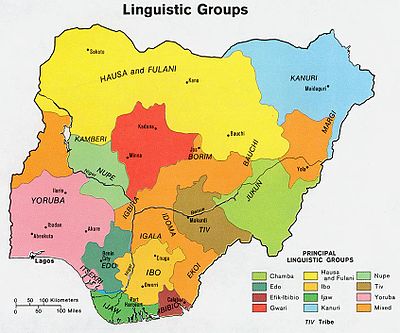Traditional Hausa medicine
Hausa medicine is heavily characterized by Islamic influence and traditional, African-style herbology, and religious practices which are still prevalent today.The yan bori's survival into the Hausa society's adaptation of Islam was facilitated by their willingness to adopt more contemporary, and Muslim, spirits as the societal shift began to occur.[2] Secondly were the healers who specialized in minor ailments and surgeries, a far more scientific group; their titles included bokaye, masu magani, wanzamai, madorai, and malamai ungozomai.As Ismail Mussein writes, The absence of surgery in Hausa medical compilations should not surprise anyone familiar with Islamic medicine on which these writers heavily depended.Apart from Kitab al-Tasrif of the Spanish physician Abul Qasim on surgery, which at any rate, went unnoticed by the rest of the Islamic world, there is hardly any work on the subject worth noting.British residents of Nigeria, for example, segregated lepers from society; however, Hausa leaders pressed to take in and look after the sick in accordance with Islamic traditions.However, many rely on western medicine, as antiretroviral treatment (ART) and biomedical institutions become more available and affordable to patients looking for relief from their symptoms.
Hausa peopleWest Africaherbologyspiritual healingIslamic cultureheadachesdetoxifyanimistsspiritual possessionsurgeriescircumcisionancient Greek medicinehospitalsdiseasediagnosislepersdiarrheafluid replacement therapypharmacologicalnumerologyastrologyantiretroviralmethodologyPharmacognosyTraditional medicineAncient Egyptian medicineTabernanthe ibogaNgangaSaltigueTraditional African medicineTraditional healers of Southern AfricaYorùbá medicineAztec medicineBrazilian traditional medicineChumash traditional medicineCuranderoKallawayaMapuche medicineMaya medicineNavajo medicineTraditional Alaska Native medicineAyurvedaDhivehi beysGeorgian folk medicineIranian traditional medicineAncientRamuanSiddha medicineSri Lankan traditional medicineTraditional Thai medicineTraditional Chinese medicineTraditional Korean medicineTraditional Mongolian medicineTraditional Tibetan medicineTraditional Vietnamese medicineUnani medicineByzantine medicineMedicine in ancient RomeMedieval medicine of Western EuropeBush medicineAlchemyAlternative medicineApothecaryMedicine in the medieval Islamic worldElectuaryEthnomedicineHealth careHerbal medicineHistory of alternative medicineHumorismMithridatismNaturopathyPrehistoric medicineShamanismTheriac